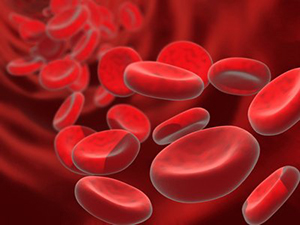 |
|
“Given one in nine men in Australia may develop prostate cancer in their lifetime, this discovery could touch thousands of lives.” |
Researchers at the Centenary Institute in Sydney have discovered a potential future treatment for prostate cancer—through starving the tumor cells of an essential nutrient they need to grow rapidly. Their work, with human cells grown in the lab, reveals targets for drugs that could slow the progress of early and late stage prostate cancer. The research has been funded by the Prostate Cancer Foundation of Australia (PCFA) and Movember.
Each year about 3,300 Australian men die of prostate cancer. It’s Australia’s second worst cancer killer for men, matching the impact of breast cancer on women.
Current therapies for prostate cancer include surgical removal of the prostate, radiation, freezing the tumor or cutting off the supply of the hormone testosterone—but there are often side effects, including incontinence and impotence.
Growing cells need an essential nutrient, the amino acid called leucine, which is pumped into the cell by specialized proteins. And this could be prostate cancer’s weak link.
Dr. Jeff Holst and his team at the Centenary Institute found, in a study to be published this month in Cancer Research, that prostate cancer cells have more pumps than normal. This allows the cancer cells to take in more leucine and outgrow normal cells.
“This information allows us to target the pumps—and we’ve tried two routes. We found that we could disrupt the uptake of leucine firstly by reducing the expression amount of the protein pumps, and secondly by introducing a drug that competes with leucine. Both approaches slowed cancer growth, in essence ‘starving’ the cancer cells,” Dr. Holst said.
First author Dr. Qian Wang says by targeting different sets of pumps, the researchers were able to slow tumor growth in both the early and late stages of prostate cancer.
“In some of the experiments, we were able to slow tumor growth by as much as 50 percent, ” Dr. Wang said. “Our hope is that we could develop a treatment that slows the growth of the cancer so that it would not require surgical removal. If animal trials are successful over the next few years then clinical trials could start in as little as five years.”
Dr. Holst says one of the other spinoffs of the discovery is a better understanding of the links between prostate cancer and eating foods high in leucine.
“Diets high in red meat and dairy are correlated with prostate cancer but still no one really understands why,” Dr. Holst said. “We have already begun examining whether these pumps can explain the links between diet and prostate cancer.
“Given one in nine men in Australia may develop prostate cancer in their lifetime, this discovery could touch thousands of lives.”
The publication of the study comes just in time for Movember, a month-long charity drive in which thousands of people around the globe grow mustaches to raise money for men’s health issues including prostate cancer.
“This fundamental research tells us more about how prostate and other cancers grow, and will open the way for new treatments in the long term,” Movember chairman Paul Villanti said. “Movember is now one of the largest non-government global funders of prostate cancer research. We strongly support innovative-targeted research that leads to significantly improved clinical tests and treatments to reduce the burden of prostate cancer. It’s great to see the progress that Dr. Holst and his team have made with the support of a Movember Young Investigator grant.”
PCFA and Movember have been working together since 2004 to reduce the impact of prostate cancer on Australian men and their loved ones.
PCFA CEO Dr. Anthony Lowe says research that has the potential to reduce the impact of prostate cancer on those who are diagnosed is a huge priority for the PCFA’s grants program.
“We commend the team at the Centenary Institute on the remarkable progress they are making in this regard,” Anthony Lowe said.
“This is part of a body of work that is investigating the very nature of cancer and opening up new avenues for cancer treatment,” Centenary Institute Executive Director Professor Mathew Vadas said.

|










